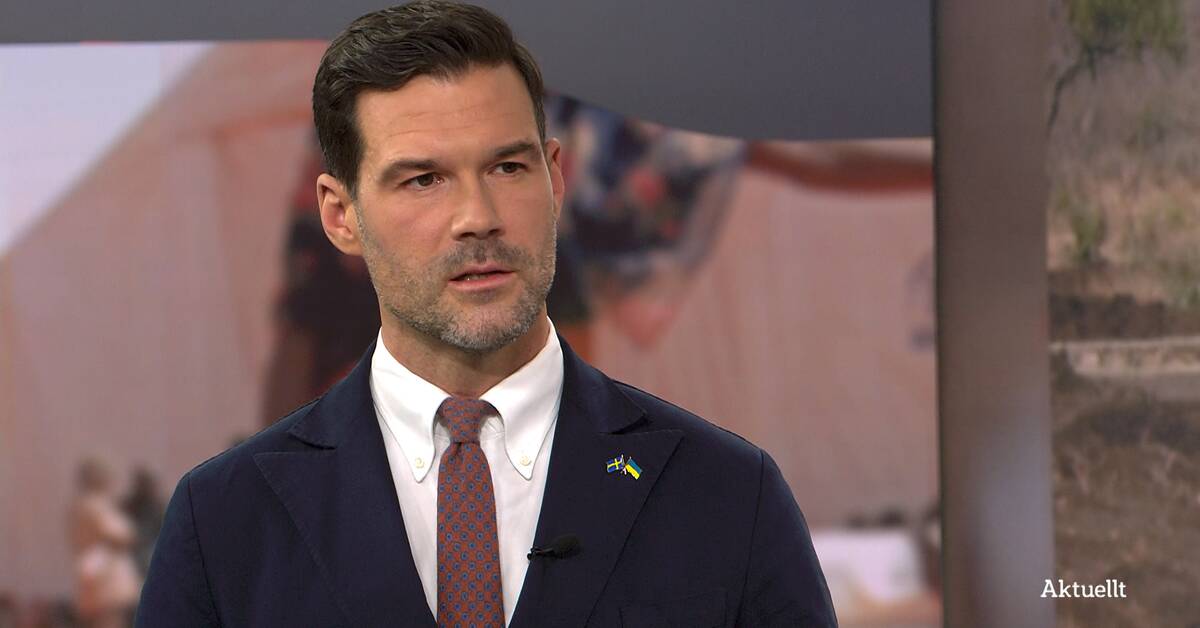The new government, together with the Sweden Democrats, has decided to scrap the one percent goal, that is, the goal that one percent of Sweden's gross national income, GNI, should be set aside for aid.
The issue of Sweden's aid was one of the sticking points in the government negotiations after the election.
M and SD wanted to lower aid, while KD and L wanted to stick to the one percent target.
- I think you should remember one thing and that is that we can't just talk about how much money we spend on aid, we also have to look at the quality and results.
And that is our overall ambition here, says Johan Forssell and continues:
- We simply think that there are other priorities to take into account, not least here at home in Sweden.
Instead of setting a goal that one percent of GNI should go to aid to other countries, the government and SD want Sweden's aid to be set in three-year budget frameworks.
- Generally speaking, we have pointed out that these large core grants to the UN and said that we want to reduce them a little bit, and instead prioritize the work of civil society, says Forssell.
Promote return migration
In the Tidö Agreement - the cooperation agreement between M, KD, L and SD - it is also stated that aid must be used as a tool to promote return migration.
Among other things, it concerns that the aid money to the countries which today do not receive their citizens who have been expelled from Sweden must be conditional.
Forsell's hope is that conditional aid will act as an incentive for the states to receive their citizens.
- This is not a miracle drug, but it can be a tool, among several others, to make the return work better than it does today, says Forssell and continues:
- It is a fundamental principle that Swedish taxpayers who send money to other countries can also make demands on those countries, he says.

